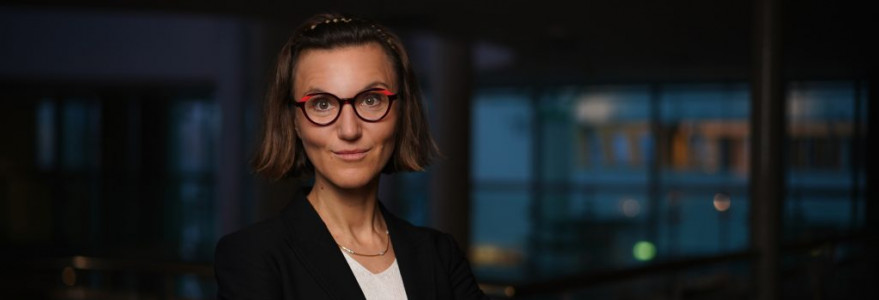The application of a model of factors influencing the consumption of the online information content will be the subject of the research to be conducted by Prof. Magdalena Wojcieszak from the UW’s Centre of Excellence in Social Sciences. Her project “Incentivizing Citizen Exposure to Quality News Online: Framework and Tools (NEWSUSE)” has been awarded the ERC Consolidator Grant.
Prof. Magdalena Wojcieszak’s project “Incentivizing Citizen Exposure to Quality News Online: Framework and Tools (NEWSUSE)” was funded to the amount of €1.99 mln.
“Many people think that disinformation, echo chambers [online groups where a person is only exposed to political information in line with their beliefs – editor’s note] and algorithmically created information bubbles (so-called “filter bubbles”) lead to polarisation and social division, foster populism and development of many other problems in democratic societies. I personally believe that a drastically overlooked issue is the fact that the majority of citizens make very little use of the information media,” Prof. Magdalena Wojcieszak says.
According to the researcher, the main issue is not that people consume “bad” political content, i.e. radical, unverified or otherwise problematic.
“The problem is that most citizens do not consume any socio-political information. News and politics make up a very small part of citizens’ ‘information diet’,” Prof. Wojcieszak emphasises.
The conclusions resulted from a long-term research conducted by Prof. Wojcieszak as part of her ERC Starting Grant EXPO at the University of Amsterdam.
NEWSUSE
The NEWSUSE project, awarded by the European Research Council, involves identifying factors (individual, social and algorithmic) that influence the consumption of online information content.
The research will be characterised by a multidisciplinary and methodologically innovative approach, and its results will be juxtaposed with the latest developments in computer science and computational social science.
Prof. Wojcieszak’s project will contribute to the development of research into social media and social communication, and will also make a significant contribution to sociological, political science and psychological sciences. The results of the research may also support work on the legal framework regulating activities in digital space.
The project will start in the second half of 2024. The research will last for sixty months.
The video is available on the University’s YouTube channel.
Prof. Magdalena Wojcieszak is a specialist in communication sciences, working as a professor at the University of California, Davis. She is a recipient of the ERC Starting Grant held at the University of Amsterdam, and has authored more than eighty publications in peer-reviewed journals. She serves as an editor of the “Journal of Communication”, and is a member of the editorial boards of seven peer-reviewed journals.
Prof. Wojcieszak’s awards include the Young Scholar Award from the International Communication Association. This year, she was elected ICA Fellow at the International Communication Association. She is a member of an independent research partnership between academics and the Meta, known as the U.S. 2020 Facebook & Instagram Election Study, and a member of the disinformation committee at Social Science One.



